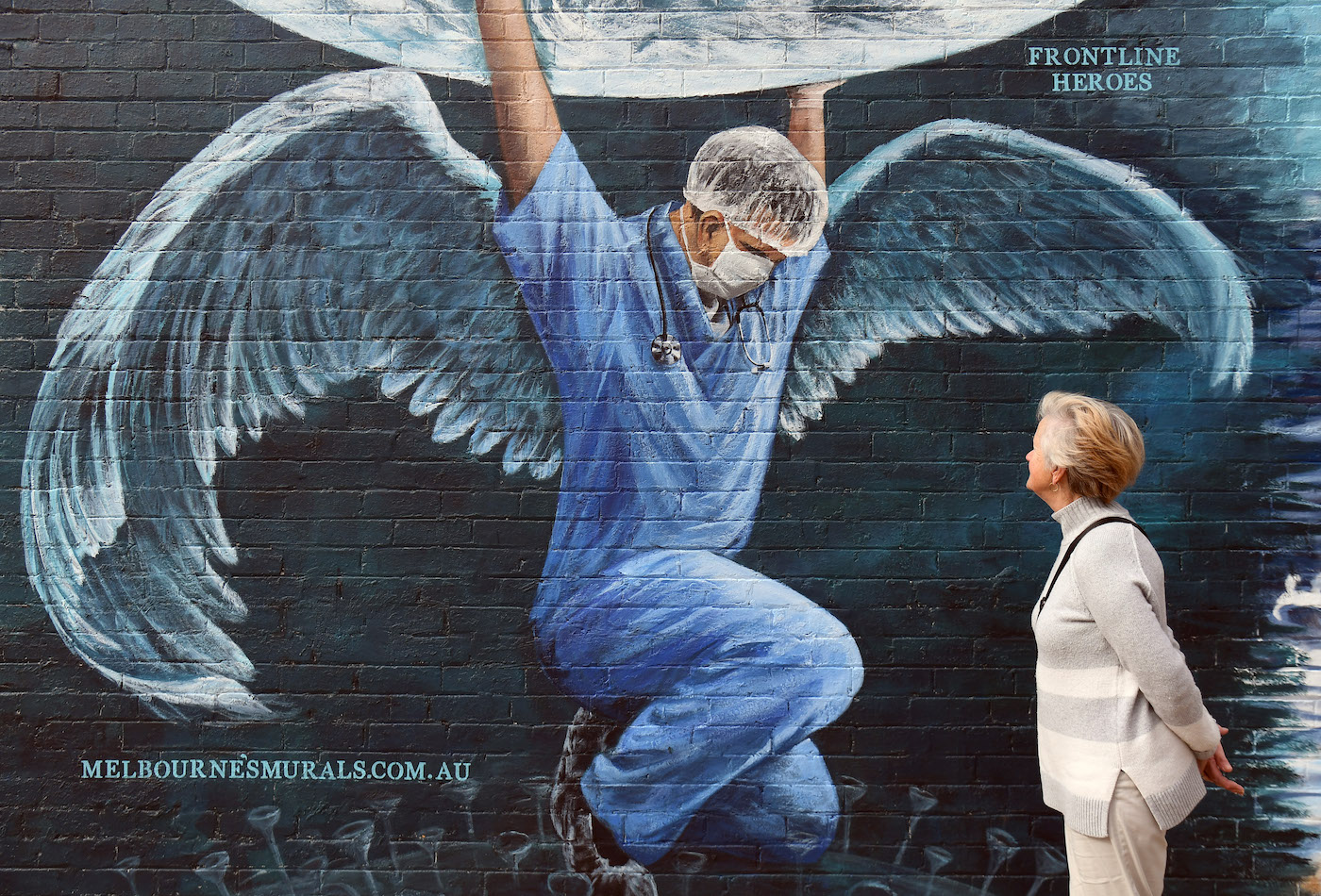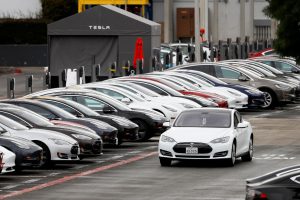Swathes of Europe as well as New York began the long process of reopening from coronavirus lockdowns on Monday, but a resurgence of infections in China and South Korea offered a sobering reminder of the dangers of a second wave of cases.
The mixed fortunes illustrate the high-wire act governments face across the globe as they try to resuscitate shattered economies while keeping in check a pandemic that has now killed some 284,000 people and infected more than 4.1 million.
For the second straight day, the United States recorded fewer than 900 deaths over the past 24 hours although the toll shot past 80,000, by far the highest in the world, according to Johns Hopkins University.
New York, the worst-hit US state, gave the green light to return gradually this week to normal life – but not yet in packed New York City, which will wait at least until June.
“We start a new chapter today,” Governor Andrew Cuomo told reporters, adding, “It’s an exciting new phase; we’re all anxious to get back to work.”
New cases in Wuhan, South Korea
As France and Spain embraced new freedoms and Britain also announced plans for a partial reopening, the Chinese city of Wuhan where the pandemic was born reported a second day of new cases after a month without a sign of the virus.
And South Korea announced its highest number of infections for more than a month driven by a cluster in a Seoul nightlife district.
With millions out of work and economies badly bruised, governments are desperate to hit the accelerator, but most are choosing a gradual approach as fears about a resurgence of the virus loom large.
In parts of Europe, officials have been emboldened by promising trends, with Spain’s daily fatalities falling to 123 and Italy – once Europe’s epicenter – reporting fewer than 1,000 patients in intensive care, the lowest since March 10 before the peak of its outbreak.
France has seen its daily fatalities decline for several days but reported an uptick on Monday with 263, as it began to dismantle a military field hospital set up when hospitals were being inundated.
‘Keep your distance’
The French were able to venture outdoors without filling in a permit for the first time in nearly eight weeks on Monday, and some shops reopened their doors.
The wide boulevards of the Champs-Elysees in Paris were once again back to life with cars and shoppers waiting patiently to make purchases, but things were not as before.
Police swarmed in to break up picnickers who defied guidelines to gather together without masks.
Many Spaniards revelled in being able to visit outdoor terraces and cafes again after months under one of the world’s toughest lockdowns, although virus hotspots such as Madrid and Barcelona remain under wraps.
“I really missed this, now you value these little pleasures,” said Jesus Vazquez, a 51-year-old builder, as he enjoyed a sandwich and beer in the sunshine outside a bar in the city of Tarragona.
Back to classrooms
Shopping strips were once again populated in Greece, while in other parts of Europe from the Netherlands to Switzerland and Croatia youngsters headed back to the classroom after weeks at home.
In the Czech Republic some teens revelled in being able to go to the cinema again – a novel outing after months of lockdown.
“We wanted to see what it’s like just to go and see a film with my friends again,” 16-year-old Tomas Fohler said from behind a mask, now compulsory in the country.
Germany too has set in motion the reopening of shops, eateries, schools and gyms, but Chancellor Angela Merkel refreshed warnings to stay safe after official data showed the infection rate picking up speed again.
“It is necessary that we can have confidence that people are actually sticking to the basic guidelines, so keeping distance, covering mouth and nose, being considerate of each other,” she said on Monday.
Measures ease in Britain, Russia
In Britain, the government unveiled a “cautious roadmap” setting out new freedoms which included outdoor exercise and allowing construction, manufacturing and other manual workers back on the job.
Almost seven weeks after a nationwide stay-at-home order was put in place, more than 31,800 people have died in Britain – a figure second only to the United States.
Russian President Vladimir Putin also said that stay-at-home orders will be eased for most workers this week, despite a surge of 10,000 new coronavirus cases every day.
US President Donald Trump, facing re-election in November, has been especially eager to end restrictions – and insisted the White House was safe, even as he said he would limit contact with Vice President Mike Pence, whose press secretary tested positive.
“Everybody coming into the president’s office gets tested, and I’ve felt no vulnerability whatsoever,” Trump said in a testy news conference that he abruptly ended.
Second wave fears
With governments across the world trying to avoid a second wave, Asian nations that were among the first engulfed by the virus but have since brought it to heel are being keenly watched.
Much of China has begun to get back to a form of normality, and on Monday Shanghai Disneyland threw open its gates following a three-month shutdown.
“We are very much looking forward to the first day of reopening,” said one eager visitor named Kitty. “We have stayed at home for around two months and got bored enough.”
But enthusiasm in China was tempered by news on Sunday that one person had tested positive for the virus in Wuhan. There were five more cases on Monday.
Local health officials said the new infections were all from the same residential compound and were mostly older people.
South Korean officials ordered nightclubs and bars closed after a new cluster of at least 86 cases linked to an entertainment district in the capital – many in gay clubs.
Officials scrambled to trace thousands of people who visited the area, but efforts were hampered with many believed to be reluctant to come forward because of the stigma surrounding homosexuality.
“If you hesitate a single day, our daily clock may stop for a month. Please contact the nearest clinic or health center right now,” urged Prime Minister Chung Sye-kyun.
AFP
























